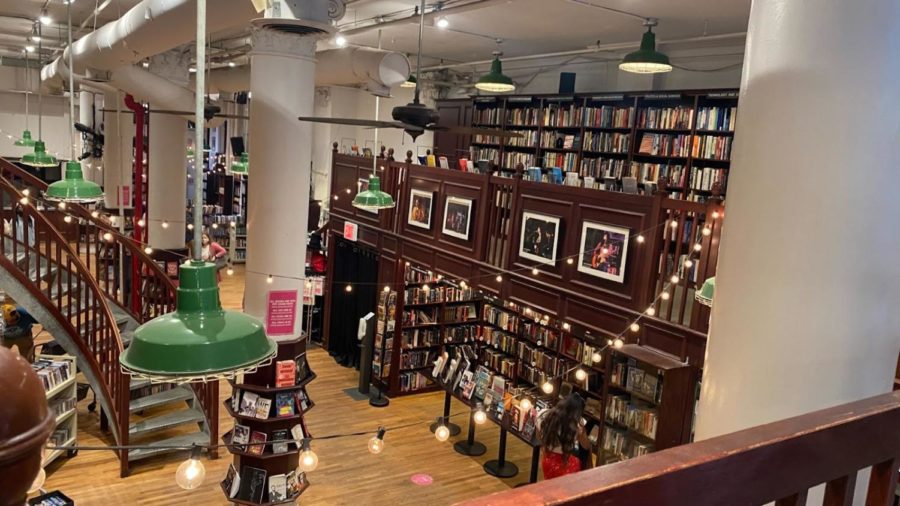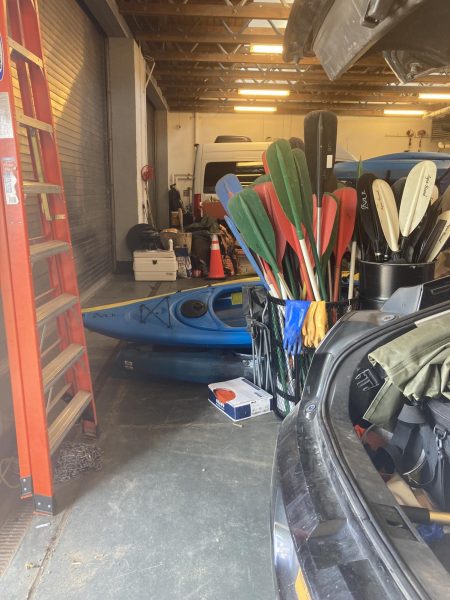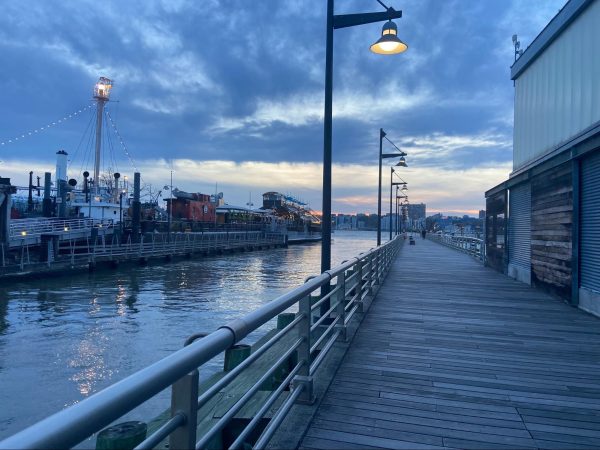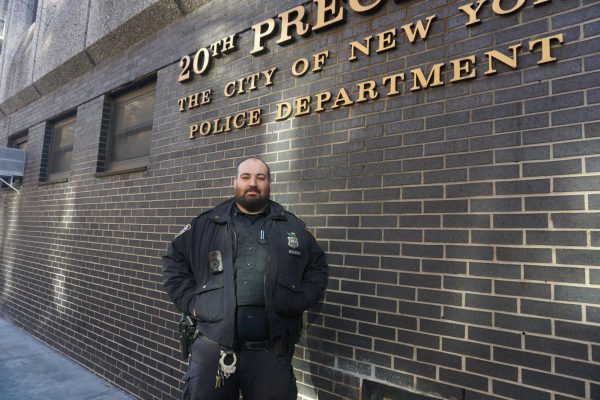New York City Turns a Page: The Plight of Our Small Bookstores
New York City’s small bookstores are suffering the aftermath of the pandemic and cultural changes: what does this mean for their futures? Will these changes to the literary industry be for the better or the worse?
The Housing Works bookshop’s physical space is stunning, and it helps to create a welcoming atmosphere for everyone who passes through.
I’m shivering from the bone-chilling cold of a rainy Manhattan day, yet warmth spreads from within me as the door to Mercer Street Books & Records shuts behind me, a small bell ringing faintly as the smell of old leather and dust fills my nose.
New York City is famous for its distinct neighborhoods, each a mix of various cultures and opportunities. When walking down a random block, you might see a skyscraper office building, a street fair, organized dancers, or maybe, nestled between large stores or on an inconspicuous block, a small bookstore. These quaint bookstores are spread throughout the city, each soothing unheard voices, and each a small new adventure.
However, throughout the past several years, the culture and allure of these bookstores have shifted. Once a tourist destination and place for community gatherings, bookshops are being left behind for a less personal experience. Easily accessible internet products and online stores have rendered the practice of reading physical books a chore, not a luxury. The culture of visiting bookshops is certainly becoming much more overlooked, if not already invisible. Apps such as Kindle and Libby have taken over, with New Yorkers choosing to read on their phone in a crowded subway car rather than carrying a heavy novel in their bags as they transfer from the Q to the L. When they do pursue a physical option, online bookstores like Amazon and large corporations like Barnes & Noble make it easier for these consumers to find exactly what they’re looking for. Yet in the process, they risk missing out on the experience that comes with a quintessential small bookstore.
Small bookstores have been a staple of New York culture for decades. They break up the modern corporate buildings with the life that brings the city together. When the pandemic hit and people were no longer leaving their homes, bookstores that relied on physical business were faced with desperate times. With these challenges came large changes in all spheres of society, and the ones made by bookstores were no exception. Many shops created online options and delivery services so that they could still sell their books while everyone was at home. However, large retailers such as Amazon were still an easier source of reading material for many consumers who did not want to search for their next read in a store with limited options. U.S. Census Bureau data showed that bookstore sales fell nearly 30 percent in 2020. The publishing industry was braced for a blow to its retail ecosystem, one that could permanently reshape the way readers discover and buy books.
The Pandemic Challenges Many Bookshops
As the publishing industry mourns the loss of book retail, New York City is mourning the loss of a part of its spirit.
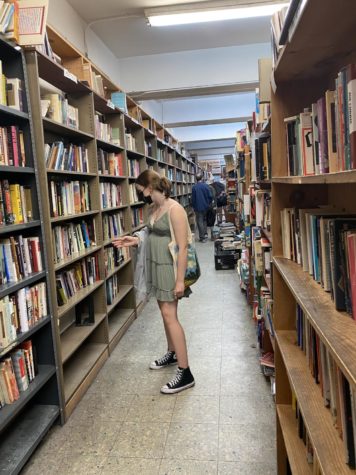
Each bookstore in New York City has its own unique qualities. From glass displays filled with comic books to shelves of classic literature collections to thrifts filled with once-read books, the niche each bookstore inhabits is crucial to its charm.
Mercer Street Books & Records is somewhat unassuming on the outside. Between Houston and Bleeker, the shop is nestled, quietly, amongst a laundromat and an apartment complex, yet its interior is the entrance to an entirely different world, an oasis from the concrete corporate block.
This bookstore is the perfect place to browse for your next read, and many of its visitors go there to experience the joy of alluring literature. When books are not calling your name, the vinyl records sold at the shop are just as interesting to peruse.
As I was browsing through the shelves of Mercer Street Books & Records, Owner Wayne Conti discussed the rough circumstances that have troubled his bookshop in recent years.
They are still recovering from the financial hit it took during the pandemic when the shop was forced to shut down for a few months. This set them far behind on revenue to the point where they are barely keeping their heads above water. “The number of people we get is about the same now as it was before,” Wayne said, but this doesn’t offset the lost months of business.
While Mercer Street Books & Records may be seeing the same amount of customers now, it is fair to say that the lack of foot traffic caused a large dent in their revenue. Wayne is not the only bookstore owner that was largely impacted by COVID. Bookstores all across the board were stretched especially thin during the pandemic and have recognized similar trends. Ms. McNally of the McNally Jackson Books was unaware of how much business she would lose during that time. “Something I’ve never known is how many of my customers are tourists. I wonder if it’s more than I thought,” Ms. McNally said in an interview with The New York Times.
Real Estate Poses a Threat
In New York City, the troubles faced by bookstores did not stop with the pandemic. All around the city, large corporate buildings are coming in and displacing small shops. Conti has long recognized this reality. New York University (NYU), has been constructing new buildings that loom outside the doors of Mercer Street Books & Records. This has not only subjected the shop to plenty of noise and scaffolding but has also hidden it further from the view of pedestrians.
NYU students are not the ones coming into the shop and bringing business, Conti explained. These students are not spending their limited incomes at small bookshops. Thus, new real estate additions to the city are not bringing him a boom of customers. They are simply turning the world away from the paper gems that bookstores offer.
The push for construction does not halt outside the doors of small bookshops, however. Rent continues to rise unrelentingly, forcing bookshops to close. While they operate on low margins, these shops require a large amount of storage space for their books. Owners must therefore rely heavily on the whims of their landlords, many of whom are forcibly pushing their tenants out. This is a problem across the board as rents skyrocket in an unfair market “to empty these buildings of rent-regulated residents and small businesses,” said Jeremiah Moss, author of Vanishing New York: How a Great City Lost Its Soul. Once they are emptied, these spaces can be sold for greater profit. “If the landlord wants us out, we’re out,” Wayne said when explaining the detrimental situation his bookshop is still in.
When the world outside Mercer becomes corporate and modernized, the bookshop is left behind without the audience that it needs and can only hope to not be replaced with the concrete itself. As business is moved online and rent rises, the danger arises that the only future these bookstores see for themselves is one where they don’t exist at all.
Rallying for Small Bookstores
Westsider Rare & Used Books, a staple independent bookstore in New York City, had an expired lease and high rent and was likely to close in January 2019. To save the day, local customers rallied, raising over $52,000 on GoFundMe in just five days.
Small bookstores are not the only ones targeted by skyrocketing rents. The Strand, one of the most well-known bookstores in New York, was at high risk of shutting down after 93 years of business during the height of the pandemic in 2020. “Sales had slumped 70 percent since 2019 because of the pandemic, and the company’s cash reserves were running low,” Nancy Wyden, owner of the Strand Bookstores, told The Washington Post. Once again, loyal customers rallied and the store received more than 25,000 online orders over the weekend, a significant increase from its normal 300 orders a day.
While rallying for every bookstore might not be possible, it is a clear cry to save the culture of New York City by saving its bookstores. If you are in the mood for a small escape or fun experience, a small New York City bookstore might be the perfect place to look.
While rallying for every bookstore might not be possible, it is a clear cry to save the culture of New York City by saving its bookstores. If you are in the mood for a small escape or fun experience, a small New York City bookstore might be the perfect place to look.
Ayana Chari is a Copy Chief for 'The Science Survey.' She has always appreciated that works of journalism bring together fact and storytelling, informing...

